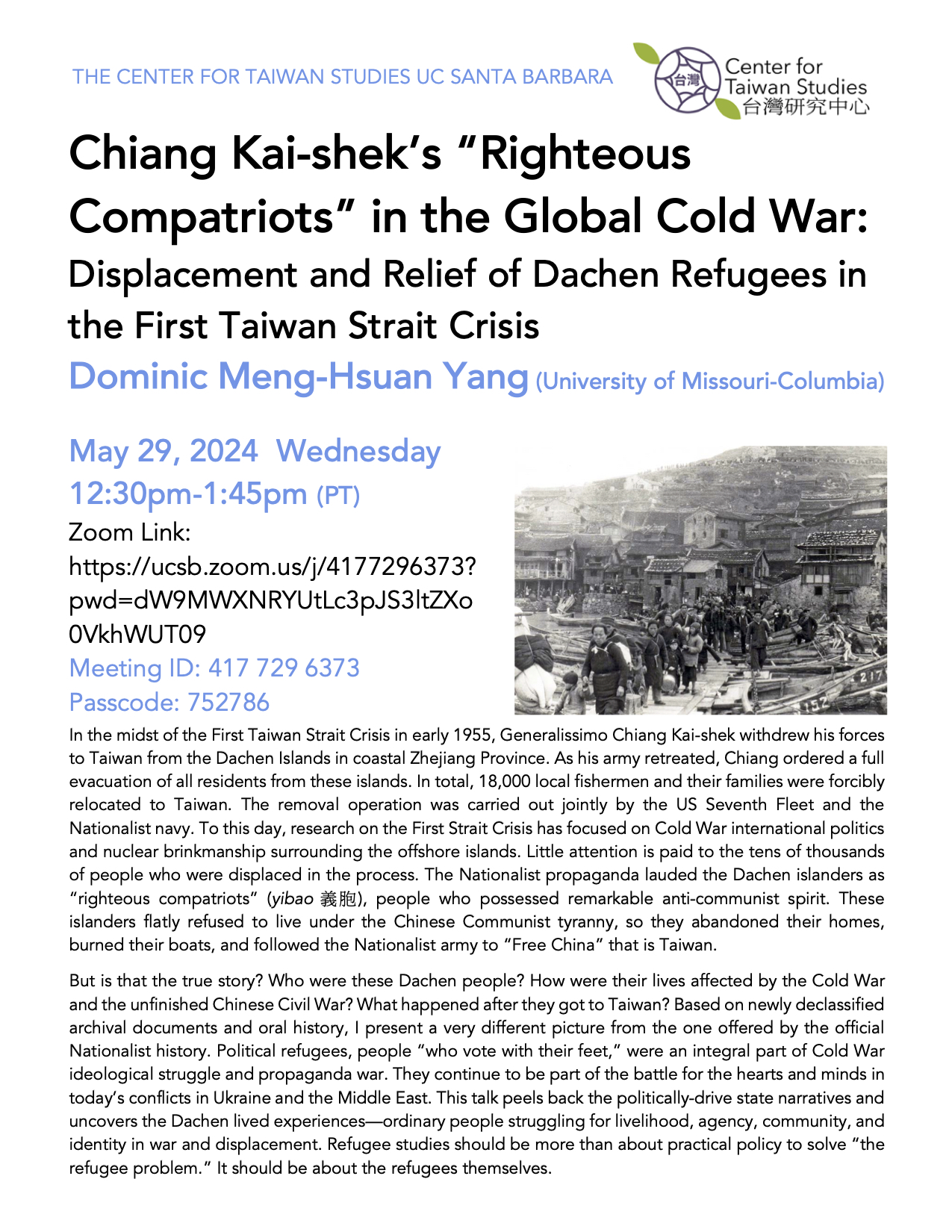
- This event has passed.
Chiang Kai-shek’s “Righteous Compatriots” in the Global Cold War: Displacement and Relief of Dachen Refugees in the First Taiwan Strait Crisis

Chiang Kai-shek’s “Righteous Compatriots” in the Global Cold War: Displacement and Relief of Dachen Refugees in the First Taiwan Strait Crisis
Dominic Meng-Hsuan Yang (University of Missouri-Columbia)
May 29, 2024 Wednesday
12:30pm-1:45pm (PT)
Zoom Link:
https://ucsb.zoom.us/j/4177296373?pwd=dW9MWXNRYUtLc3pJS3ltZXo0VkhWUT09
Meeting ID: 417 729 6373
Passcode: 752786
In the midst of the First Taiwan Strait Crisis in early 1955, Generalissimo Chiang Kai-shek withdrew his forces to Taiwan from the Dachen Islands in coastal Zhejiang Province. As his army retreated, Chiang ordered a full evacuation of all residents from these islands. In total, 18,000 local fishermen and their families were forcibly relocated to Taiwan. The removal operation was carried out jointly by the US Seventh Fleet and the Nationalist navy. To this day, research on the First Strait Crisis has focused on Cold War international politics and nuclear brinkmanship surrounding the offshore islands. Little attention is paid to the tens of thousands of people who were displaced in the process. The Nationalist propaganda lauded the Dachen islanders as “righteous compatriots” (yibao 義胞), people who possessed remarkable anti-communist spirit. These islanders flatly refused to live under the Chinese Communist tyranny, so they abandoned their homes, burned their boats, and followed the Nationalist army to “Free China” that is Taiwan.
But is that the true story? Who were these Dachen people? How were their lives affected by the Cold War and the unfinished Chinese Civil War? What happened after they got to Taiwan? Based on newly declassified archival documents and oral history, I present a very different picture from the one offered by the official Nationalist history. Political refugees, people “who vote with their feet,” were an integral part of Cold War ideological struggle and propaganda war. They continue to be part of the battle for the hearts and minds in today’s conflicts in Ukraine and the Middle East. This talk peels back the politically-drive state narratives and uncovers the Dachen lived experiences—ordinary people struggling for livelihood, agency, community, and identity in war and displacement. Refugee studies should be more than about practical policy to solve “the refugee problem.” It should be about the refugees themselves.